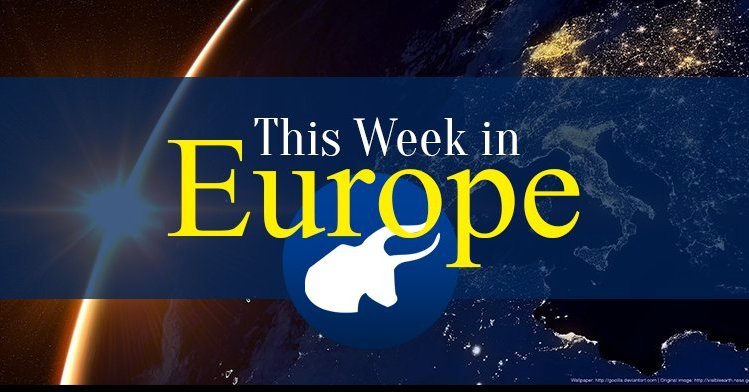ECR tap Jan Zahradil as lead candidate
On Tuesday, the European Conservatives and Reformists Group (ECR), announced that Czech MEP Jan Zahradil will be its Spitzenkandidat for the presidency of the next European Commission. The third largest group in the Parliament, with 75 MEPs, ECR was founded by the British Tories, when they left the EPP in 2009. As such, ECR is expected to be depleted of members after Brexit, as 18 of its members are British, followed by Poland’s PiS MEPs. Zahradil denounced the “federalist” integration model of “Old Europe” representatives Weber and Timmermans. The Czech MEP supports a multi-speed Union and greater freedom for member states in terms of foreign relations, wants to set the EU as the “world’s trader leader” and to enhance border protection by helping member states.
Czech PM denies son’s kidnapping allegations
This week, Czech Prime Minister Andrej Babis openly denied that his son was kidnapped in order to prevent him from testifying in an EU fraud investigation. The kidnapping was first mentioned by the PM’s eldest son himself, Andrej Babis Jr., to a TV station, which prompted calls for the resignation of the father in order to allow a thorough investigation. Babis Jr. told reporters that he was taken to Crimea against his will and kept there - but did not mention when or how, only that he believed that it was to prevent him from giving evidence in an investigation into charges that his father took 2 million euro in EU funds through a farm and a convention center. Prime Minister Babis released a statement arguing that his son is mentally ill and on medication, and that the police concluded that no kidnapping took place.
EU lost track of €1 billion in Turkey
Because of Turkey’s data protection laws, the European Union cannot verify how €1 billion in aid given to Ankara in order to deal with Syrian refugees was really spent. Bettina Jakobson, EU’s chief auditor, argued that the money trail simply cannot be followed, as Turkey refuses to provide access to key documents. Back in 2015, the EU agreed to give Turkey €3 billion in aid as part of an agreement meant to help refugees and to keep them from crossing to Greece. At the moment, however, no one can say with certainty how that part of that money was spent.
Macron & Facebook vs. Hate Speech
On Monday, French President Emmanuel Macron announced a six-month partnership with the social media platform Facebook which has as an aim countering hate speech online. Specifically, the two partners want to figure out how to approach hate speech on social media. This is the first time that Facebook joins national politicians to deal with the problem - together they will focus on removing harmful content, with the possibility of expanding the agreement after six months. Under fire for the way in which it has been handling digital and misinformation issues in the last U.S. campaigns, Facebook is now lobbying national governments in an attempt to convince them that regulating the internet poses unique and complex challenges. With this partnership, the social media giant is moving from self-regulation to actively shaping legislation.
Poles celebrate 100 years of independence
On Sunday, 200,000 Poles took part in a parade marking 100 years of Poland’s restored independence. While the crowd was varied, ultra-nationalists and football hooligans were still present, underlining a deep political division in the country. Initially, the parade was entire a nationalist affair, with the opposition boycotting it as usual, while the banners of fascist groups from Italy, Hungary and Slovakia could be seen everywhere. However, moves by president Adrzej Duda and PM Mateusz Morawiecki transformed the parade into a much larger event, and in the end, most of the people who took part were ordinary Poles celebrating the anniversary. The Polish opposition held its own ceremony before the monument of Josef Pilsduski, one of the architects of Polish independence.
Bulgaria announces it will not sign new global migration agreement
Six EU states, Hungary, Austria, Poland, the Czech Republic and now Bulgaria, have signalled that they will not sign the Global Compact for Safe, Orderly and Regular Migration at the ceremony in December. Though the agreement was backed by all states except the United States in June, anti-migration populists in the EU have started to back out of the deal. In the face of domestic trouble, Bulgaria’s Socialists pledged to fight against the migration pact as a way to destabilise the government. Bulgaria’s government, a volatile coalition including nationalist groups, hopes to maintain its hold on power by withdrawing from the global agreement. Commenting on this issue, European Commission President Jean-Claude Juncker has said that: “those countries that decided they are leaving the UN migration compact, had they read it, they would not have done it.”
Berlusconi in new corruption trial
Former Italian Prime Minister Silvio Berlusconi has been brought to trial this week over corruption allegations. He is accused of having bribed a businessman to lie about claims that he had helped Berlusconi acquire prostitutes decades ago. According to prosecutors, Berlusconi gave €500,000 to the businessman, as well as finding him a job and hiring lawyers on his behalf. Berlusconi has spent many years wrapped in his corruption trials, some of which resulted in convictions, but the 82 year old denies any wrongdoing.
Commission denounces Romania for backsliding on corruption
Romania’s government has suffered another blow after the European Commission’s annual report on justice in Romania cast doubt on the commitment of the country to fighting corruption. Even as Romania prepares to take the EU’s rotating presidency, the report urged the government to suspend its current planned changes to the judicial system and to appoint a new anti-corruption prosecutor. Both Romania and Bulgaria have had their justice systems under special oversight as a condition of their accession to the EU. In contrast to Romania, Bulgaria was found to have made progress and could exit the scrutiny programme within a year. Such an outcome seems increasingly unlikely for Bucharest.


Follow the comments: |
|
